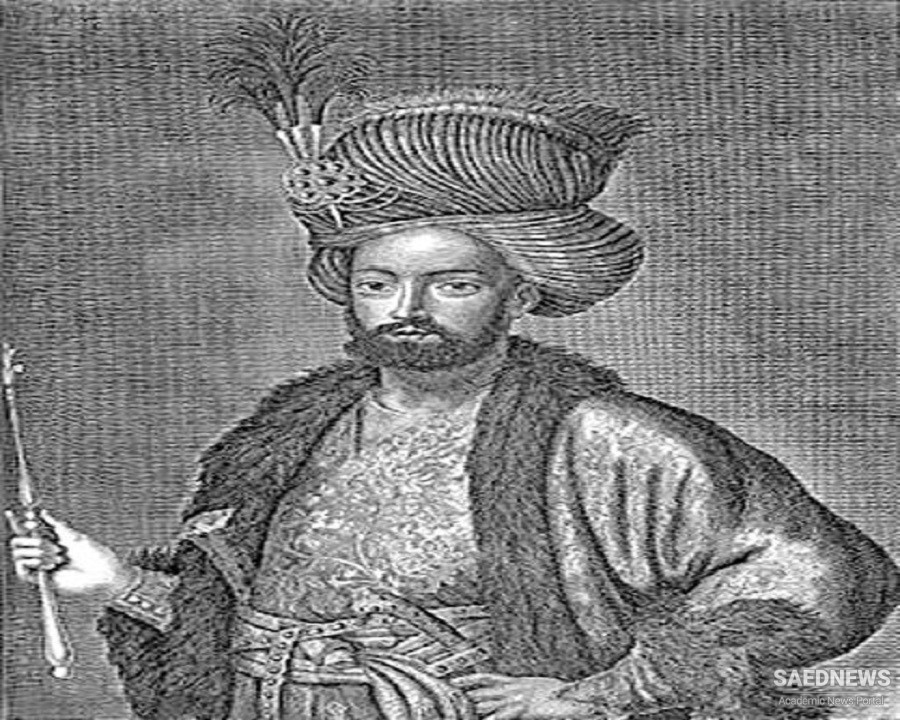He himself had failed to nominate a crown prince. Instead, he is said to have advised the dignitaries gathered around his sick-bed during his last hours that if they were concerned to maintain peace and quiet they should make his elder son, the twenty-six-year old Sultan Husain Mlrza his successor; if, on the other hand, they wished to strengthen royal power and expand the empire they should rather appoint the latter's twenty-three-year old brother, 'Abbas Mlrza. The ruler passed away at an unforeseen moment when no-one was present. His death was discovered by his aunt, Princess Maryam Begum, whose sympathies lay wholly with Prince Husain. She informed the influential eunuchs and it is unlikely that she had any difficulty in winning their support for her favourite.
His coronation on 14 Dhu'l-Hijja 1105/6 August 1694 meant the continuation of his father's misrule, albeit in a somewhat different key. At the same time it was the prelude to the fall of the Safavid dynasty. Sultan Husain had, it is true, a reign of twenty-eight years before him, but not one, however, destined to bring happiness to the empire. He and his country, which for more than two centuries had withstood serious crises within and powerful enemies without, were to suffer a catastrophe at the hands of an opponent as unforeseen as he was basically insignificant, but whom the shah and his army were powerless to repulse. Before considering this, however, we need to discuss his character, his outlook on life and his conduct of government.
Shah Sulaiman's statement concerning the choice of his successor, whether actually made or subsequently attributed to him, was well founded in the quite different personalities of his sons, the two eldest of a total of seven. Both had grown up in the seclusion of the harem and neither of them had received an education or preparation of any kind for the tasks which awaited a future monarch of Persia. Manliness, bellicosity, sobriety and adroitness were the main characteristics of Prince 'Abbas. Sultan Husain was totally different: a placid, social personality, studious, abstemious and, even in his early years, pious to such a degree that he was given the nickname "Mulla Husain" by those around him. His indifference towards the governmental duties assigned to him — in this respect he was just like his father — found expression in another nickname he was given, Yakhshidir ("very well!"), which was his stock response whenever matters of government were expounded to him.
In the good intentions with which he began his reign the new shah had the support of the Shaikh al-Islam Muhammad Baqir Majlis (b. 1037/1627, d. mi/1699), a famous theologian on whom Shah Sulaiman had already conferred office. Initially, it looked as though this man, who had girded on Husain's sword during the solemn investiture, would prevent the young monarch from following in the evil ways of his predecessors. He was the driving force behind Husain's first decrees, which forbade abuses of the religious code that had become widespread, such as unbridled consumption of alcohol. On his initiative too the sufis were banished from the capital, members of the very order of which the shah himself was master but with whom he no longer felt any affinity.


 Foreign Encroachments and Divided Nation
Foreign Encroachments and Divided Nation














































